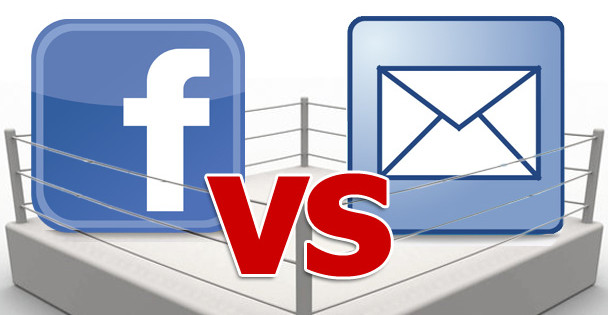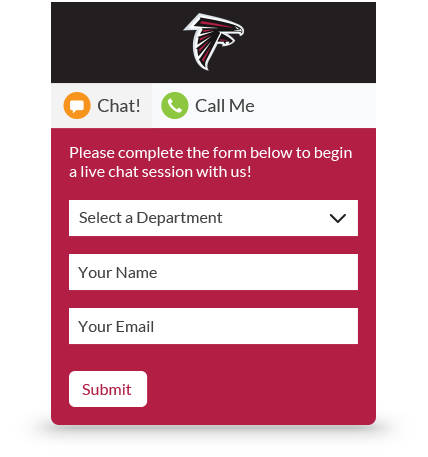
It’s a New Year!
And if you are just reading this in March or September, it’s a new month or a new week!
Whatever time of year it is, it is always time to get the “Word” out your servcies.
It’s time to tell everyone in and around your office and community — about your chiropractic and professional services and how they should get them now!
But what is the best way to do this?
Well, obviously, with each person you see when you are seeing them. You – and your health team – have a captive audience. Sometimes referred to as “Table Talk,” this is your way of educating your people at the time of service.
You can augment this with new patient workshops that motivate, educate, and entertain your people. It is a free class but is part of their treatment program because you have found that people “get better faster and stay healthier longer if they get a better understanding of the health process we are doing together.” Also…“It assists with your treatment program and you get a better return on the work you put in. It is just a good investment!”
Then…don’t forget your team. They need to hear about the successes and case stories of how their office really helps people.
But your patients aren’t always in your office. What then? Shouldn’t your conversation with them continue? Other vendors are certainly getting their “word” out. Pharmaceutical ads are pervasive.
What about people who have not discovered you yet – how do best tell them about how you can help them and why they should see you?
Many of you make posts on Facebook in hopes that this will help market your services.
Does it?
What about email? Some of you subscribe to template emails that go out to your patients. How is this working?
I have some strong feelings about this subject — but first I wanted to see what others have said and what the studies show. Here is the question:
Which is the better medium for marketing:
Facebook or Email?
Which works better?
According to most of the surveys that I have seen, email is the winner.
But comparing both mediums is like comparing apples to oranges — both work depending on how much time and expertise you put into it.
But it stands to reason that if you have someone’s email, they are a subscriber and have given you permission to address them personally.
From a sampling of various studies and surveys (references at the end of this article):
“Where is the first place you go online in a typical day?”
- Email 58%
- Search portal 20%
- Facebook 11%
- News site 5%
- My company’s website intranet 3%
- other 3%
“Where do you look when you want a deal from a company that you know?”
- Email: 44%
- Company website:43%
- Search engine (e.g. for coupon codes): 6%
- Facebook: 4%
Email reaches 79% of the people you send it to (this is the global average inbox placement rate). On the other hand, Facebook’s organic reach has declined to about 1 to 6%, depending on your total number of fans.
So the stats and studies seem to show that you are going to get a better ROI from email.
Over the years, I have observed that patient referrals, patient visit average, and reactivations improve with regular emails.
Facebook and social media can help create familiarity and trust. From this you can direct people to your website for upcoming events or information. You can also buy ads that target specific types of potential patients and set up workshops or make special offers. I have seen this work on occasion very well
But the algorithms, or computational rules, for Facebook and other mediums are always changing and what worked last month may not work this month. Currently, Facebook is becoming more of a “pay to play” medium – peppered with inspirational forwards and political rantings!
With email, you own your list and make your own rules. Plus, it is nearly free.
Email is a direct and personal letter from you to another person.
It is authentic and genuine. It is the reader – and you, personally. It is not manufactured “health news” which is just a mash-up of articles from 1998.
In this busy and more automated world, genuine communication is becoming scarcer… and more valuable.
The biggest challenge is simply getting the email out.
Actually, this is the big problem with all of your marketing – who is going to do it — and when?
We have found some simple procedures that work for getting this done which I offer below. But first, let’s look at the future.
The Future: Trending…
The future medium will continue to be more direct communication for selling. The trendy term is “conversational commerce.”
“Consumers are increasingly relying on messaging apps for all forms of communication, whether personal, business, or commerce. … Messaging apps are becoming the preferred means of communication.” (emarketer)
Messaging is personal, it is one to one.
According to a research commissioned by FacebookIQ and Nielson:
“53% of people are more likely to do business with a business they can message.”
This means, when people visit your Facebook page, if they can chat with you personally, half of them will be inclined to come in for a visit.
You can take a look at a couple of applications – Chatfuel and Manychat – for inexpensive chat programs that you can add on to your Facebook.

You can also ask your webmaster to install a chat system on your web site. An example is websitealive.com.
But the force of all this is personalized communication, something that emails and sales letters and video letters have always done and continue to do better than Facebook.
A few weeks ago I received an email newsletter from a yoga instructor I have followed off and on for a few years. I had question so I sent her an email thinking she might answer it. She did. What’s more, she included a short personal video – directly to me! I am now considering buying her DVD’s when I hadn’t even considered it before.
So how are you going to “Get the Word Out?”
I recommend personally. One-to-one. In a conversation in the office and out of the office through email and maybe… chat.
A Simple Procedure to Get Your Emails Out
- Someone in Charge. Assign someone to coordinate your email messages and newsletters. (They can also coordinate Facebook and Chat.)
- Time to do the Work. Give them at least 4 hours per month to get it done.
- Monthly/Weekly Reports. Have them give you a monthly written report and review it with them. (Advanced: Include email stats and Facebook stats this month and if they are up or down from the prior month. Analytics!)
- Email Content. The email should have a 3-4 paragraph (or more) candid letter from the doctor written as if she is talking to “Mildred” or “Jeff,” or just to one patient in particular. You can call it “Health Notes from Doctor Ed.”Or, publish it as a short newsletter, and include a recipe (My Grandma’s Buffalo Chili. I don’t like it but everyone I have ever met loves it. In fact, my uncle claimed it got him his wife, Mildred. Here is a picture of Milly (lucky guy!)” [show picture]
- Dictate it on your way to or from work and have someone edit.
- Email Service. Use Constant Contact, Mailchimp, or another service and send out your mail.
- Frequency. Do this 1-3 times per month. Keep it simple.
- Promotions. Attach a monthly promotion to it every now and then.
- Funky Office Fluff. Add recipes, success story, local news, or other interesting notes every now and then. (Think of over the back yard fence, neighbor to neighbor, chatting about local news.)
- Continue the Conversation. But most important is continuing your conversation with patients. The email is just you continuing your “Table Talk.”
- Messaging! Add a messaging application to Facebook and to your website.
- Don’t Get Addicted to Social Media. Don’t get sucked into Facebook drama!*
Remember that a practice is a network of relationships built and sustained in part by communication. Now and then attach a promotion to your email and this is one of the least expensive forms of marketing you will ever do.
Keep the conversation going…and going and going.
Till next time,
Ed
(*Facebook Drama. Social networking definitely has positive uses. But, according to one of its founding executives, it has negative effects. In an interview at Standard School of Business, Chamath Palihapitiya, (known as “C.P.”) who joined Facebook in 2007 and became its vice president for user growth, says that he feels tremendous guilt for the company that he helped make. Facebook, and others he says, have succeeded by “exploiting a vulnerability in human psychology.” “I think we have created tools that are ripping apart the social fabric of how society works,” he told an audience at Stanford Graduate School of Business. He hasn’t used it for years and won’t let his kids use it either!
“The short-term, dopamine-driven feedback loops we’ve created are destroying how society works,” he said, referring to online interactions driven by “hearts, likes, thumbs-up.”
It is a great interview that you can watch or listen – link at the end of the article.)
https://www.campaignlive.com/article/facebook-study-53-consumers-likely-shop-business-message/1404632
https://www.mailmunch.co/blog/email-marketing-vs-social-media/
http://image.exct.net/lib/fe641570776d02757515/m/1/SFF1-TheDigitalMorning.pdf
https://returnpath.com/wp-content/uploads/2015/10/2015-Deliverability-Benchmark-Report.pdf
https://support.getresponse.com/uploads/2016/01/The-State-of-Email-Marketing-by-Industry-January-2016.pdf
http://image.exct.net/lib/fe641570776d02757515/m/1/SFF14-The2012ChannelPreferenceSurvey.pdf
https://manychat.com/
https://www.websitealive.com/alivechat/
https://www.emarketer.com/Article/Digital-Content-Advertising-Key-Revenue-Generators-Messaging-Apps/1013247#sthash.OEDM1ML5.dpuf
https://www.campaignlive.com/article/facebook-study-53-consumers-likely-shop-business-message/1404632
Talk on social consequences of Facebook. https://www.youtube.com/watch?v=PMotykw0SIk
